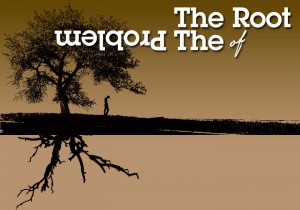Finding the roots.
Post #5: Inman p. 201-268
“Widespread differences between groups who live in different settings might tell us something about the impact of settings, but it might also tell us something about the kinds of people who choose to live in such settings.” (p. 215)
As mentioned in our previous text, Crabgrass Frontier, we can learn a lot about people due to their choices in housing. Housing and neighborhood preferences can be a great reflection into the priorities of people. The chapter on race discusses the correlation of racial segregation and racial inequality. Some people believe that increased segregation leads to negative effects on minority groups, particularly African Americans. The majority of studies show that there isn’t a correlation between the two. Fortunately, racial segregation has decreased over the past few decades, but unfortunately, racial inequality has increased.
In the second chapter we learn about poverty programs. I find it interesting that these two chapters are back to back, because poverty doesn’t discriminate against race. All races and ethnicity are susceptible to the effects of poverty. I’ve mentioned Ruby Payne’s book about understanding poverty in a past blog, but I think it relates to this discussion as well. She talks in detail about the differences in generational and situational poverty. More often generational poverty can show trends in various races; however, situational poverty can truly be in any race due to it’s unexpected nature: a lost job, loss of a family member, life changing accident, etc. Poverty effects all races whether directly or indirectly.
When combining the thoughts of racial segregation, racial inequality, situational poverty and generational poverty, how can we find the roots of all of these problems?
“Making Cities Work” has mentioned multiple times that we cities should focus on people and not places. This is the same for these two chapters. Race seems to still matter so much in our society due to the mindset of people, not necessarily the places they are living. People already have preconceived notions of their ideal balance of diversity within the neighborhood they would like live. As for poverty, we have seen that the most effective poverty programs are people focused. Early intervention programs show to be the most effective way to improve the outcomes of children, not public housing programs. When we focus on the people and not their place it seems that we accomplish more overall as a society.
Relating this to Memphis: Last fall I saw the “As I Am” short film from Alan Spearman. This is a heartbreaking and riveting short film about Memphis poverty, “what Obama didn’t see.” I watched this video over and over again, because I wanted to take in every screen shot and character. I want to know every person’s story. Are they experiencing poverty due to job loss? How many generations of their family have been accustomed to poverty? What programs are they using to alleviate the negative effects of poverty? I know that the video does not provide all the answer, but it does do one very important thing: it relates the problem to people. We may not know the root of all of their problems, but we know that if we try solutions that focus on people, rather than places, then we can hopefully see improvements.


August 5, 2013@ 12:47 am
Loyalty, protection, respect, and honor from their peers or “the streets” are all some of these people have. The streets are their family. I took me to spend 3 months with single mothers under 30 years old to understand the psychological scars from childhood which they carries with them. Most days, I cried for them; and, stopped by my Mom for being a nurturing mother. Survival are what they know by ANY means necessary. After 5 years in social services, I became disheartened although I knew most need services.You began to see at 18 years old that they think it is a rite o passage to come get their own case. In court, I see a 17 yr old throw away his ticket out. His “friends” convince him to go out the night before he leaves college. They rob a liquor store. His 3 strike-now he lost full 4 year baseball scholarship and 10 to 15 years from son whom he had custody. Family rather see him in jail; then live them. Crab mentality!
September 20, 2023@ 7:37 am
As a professional in the field, Thomas stays up-to-date with the latest advancements in online course help and technological tools that enhance the efficiency and accuracy of the dissertation writing process.